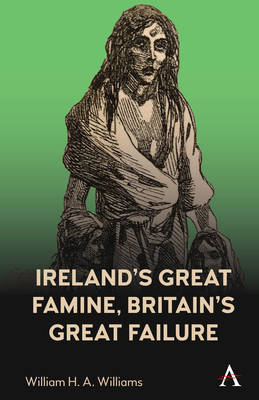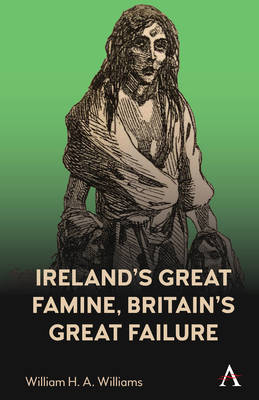
- Retrait gratuit dans votre magasin Club
- 7.000.000 titres dans notre catalogue
- Payer en toute sécurité
- Toujours un magasin près de chez vous
- Retrait gratuit dans votre magasin Club
- 7.000.0000 titres dans notre catalogue
- Payer en toute sécurité
- Toujours un magasin près de chez vous
Description
Most books about the Irish Famine tend to take Ireland's reliance on potato for granted and treat the arrival of the deadly blight in 1845 as merely the trigger event that launched a humanitarian crisis--one that the British government famously failed to manage. In this work, considerable attention is paid to the origins and nature of Ireland's dangerous potato dependency. Although introduced into Ireland as a cultivated plant, the potato nevertheless had the impact of an invasive species, disrupting and reorganizing Irish agriculture. Drawing upon ecology and systems theory, this study provides a detailed account of the intricacies of Ireland's potato economy built upon an unstable and unsustainable monoculture that became a cybernetic trap.
When almost the whole potato crop failed in the fall of 1846, what began as an ecological disaster quickly became a political one. Hampered by long-standing prejudice and Anglo-Irish tensions, the British government's various attempts to deal with the humanitarian crisis were muddled by competing economic and social goals. Among these was the idea that the Famine represented an "opportunity" to purge Ireland of fragmented land holding and potato dependency by encouraging an English-type market-driven agriculture. Changes did occur, but the government's imperial dreams eventually ran up against Irish realities.
This book provides readers with a unique, in-depth understanding of the background to the Irish Famine and a detailed account of the crisis, as well as the immediate and long-term results of the catastrophe. In addition to ecological and agriculture factors, this work shows how cultural, economic and political influences shaped British attitudes and policies. Although Britain's policies reflected anti-Irish prejudices, it was not the "Irish people" who were the victims of the Famine, but rather the Irish poor. By the mid-1840s, Great Britain was an emerging, middle-class democracy imbued with a faith in free markets and a deep suspicion of the poor, English as well as Irish. The Government's response to the Irish Famine reflects the problems democracies often have setting aside class and racial prejudice in order to deal with humanitarian crises.
Spécifications
Parties prenantes
- Auteur(s) :
- Editeur:
Contenu
- Nombre de pages :
- 332
- Langue:
- Anglais
Caractéristiques
- EAN:
- 9781839989698
- Date de parution :
- 06-06-23
- Format:
- Livre broché
- Format numérique:
- Trade paperback (VS)
- Dimensions :
- 152 mm x 229 mm
- Poids :
- 489 g

Les avis
Nous publions uniquement les avis qui respectent les conditions requises. Consultez nos conditions pour les avis.






